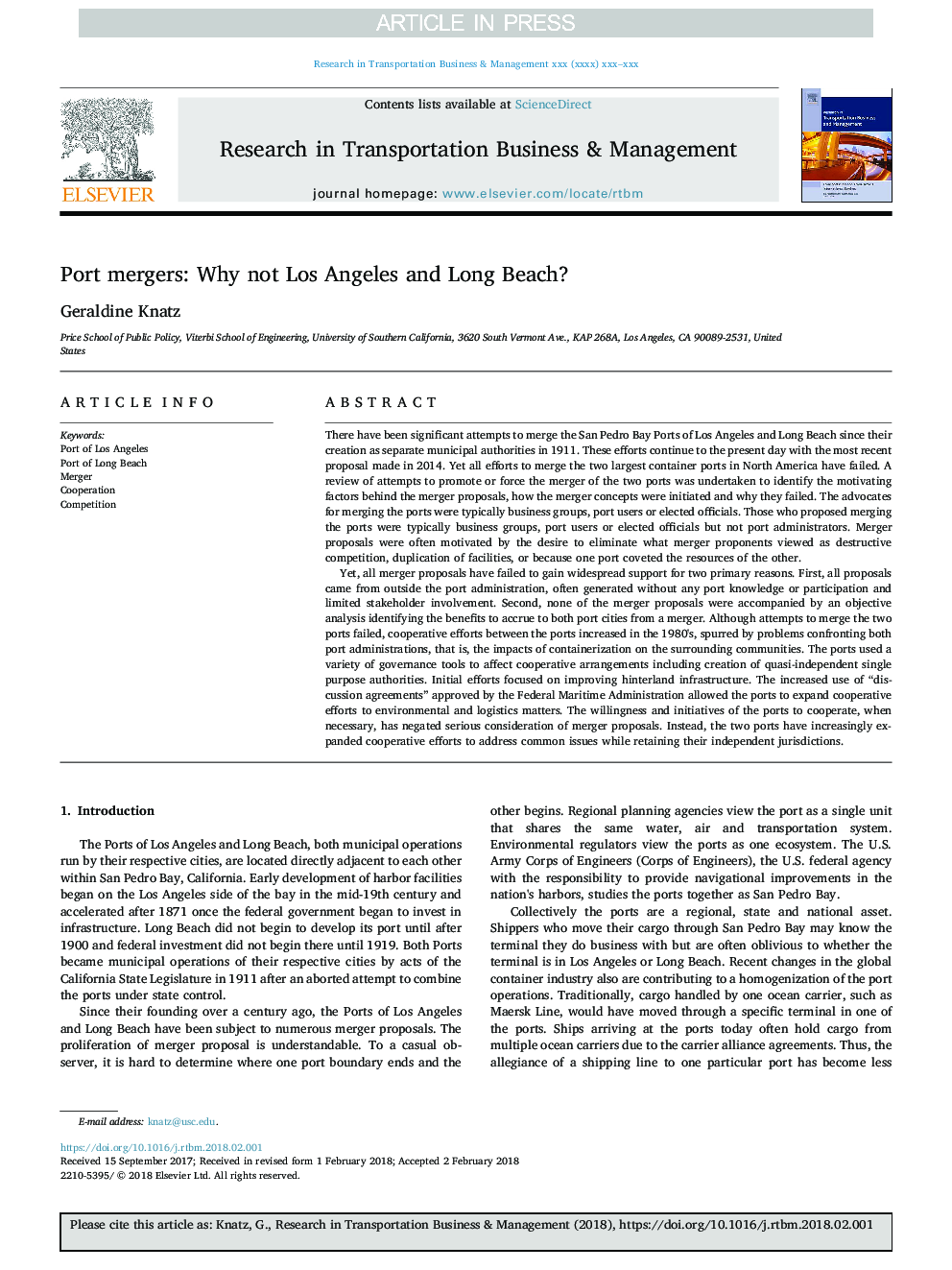| Article ID | Journal | Published Year | Pages | File Type |
|---|---|---|---|---|
| 7410146 | Research in Transportation Business & Management | 2018 | 8 Pages |
Abstract
Yet, all merger proposals have failed to gain widespread support for two primary reasons. First, all proposals came from outside the port administration, often generated without any port knowledge or participation and limited stakeholder involvement. Second, none of the merger proposals were accompanied by an objective analysis identifying the benefits to accrue to both port cities from a merger. Although attempts to merge the two ports failed, cooperative efforts between the ports increased in the 1980's, spurred by problems confronting both port administrations, that is, the impacts of containerization on the surrounding communities. The ports used a variety of governance tools to affect cooperative arrangements including creation of quasi-independent single purpose authorities. Initial efforts focused on improving hinterland infrastructure. The increased use of “discussion agreements” approved by the Federal Maritime Administration allowed the ports to expand cooperative efforts to environmental and logistics matters. The willingness and initiatives of the ports to cooperate, when necessary, has negated serious consideration of merger proposals. Instead, the two ports have increasingly expanded cooperative efforts to address common issues while retaining their independent jurisdictions.
Keywords
Related Topics
Social Sciences and Humanities
Business, Management and Accounting
Business and International Management
Authors
Geraldine Knatz,
